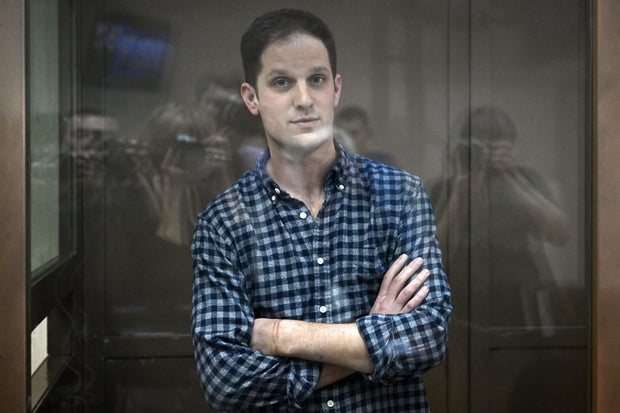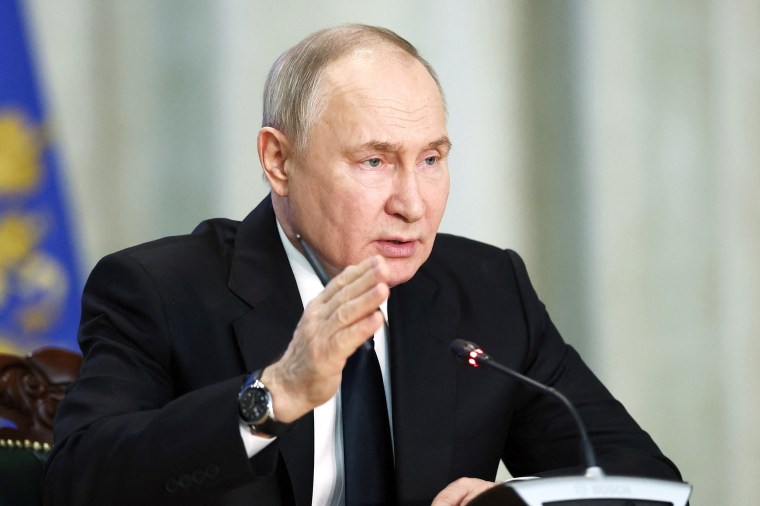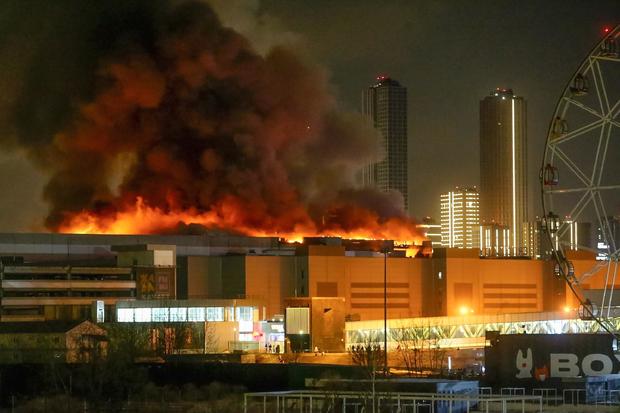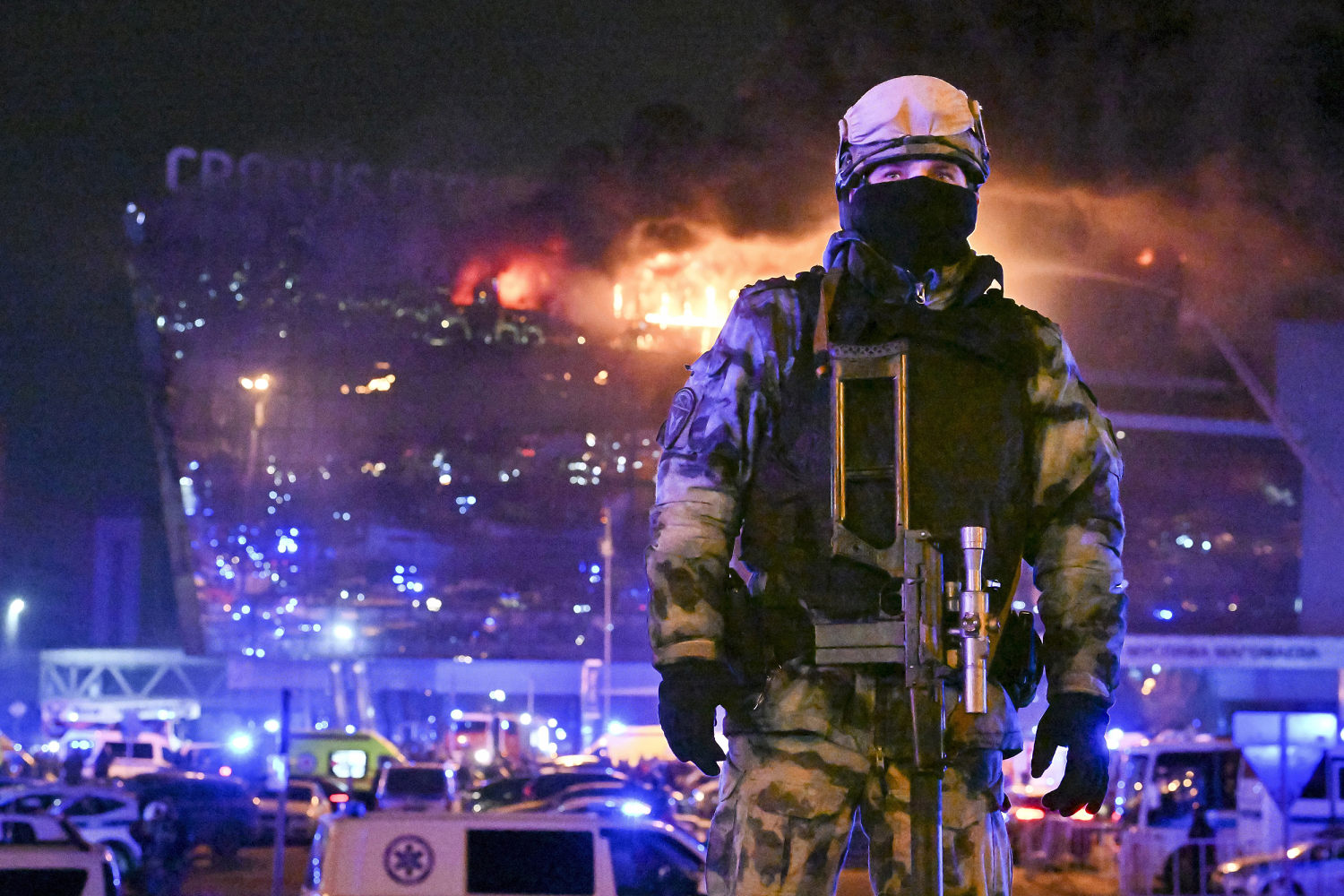Washington — President Biden pledged Friday to “continue working every day” to secure the release of Wall Street Journal reporter Evan Gershkovich from Russian detention, as the American journalist’s time imprisoned in Russia hit the one-year mark.
“We will continue to denounce and impose costs for Russia’s appalling attempts to use Americans as bargaining chips,” Mr. Biden said in a statement released Friday that also mentioned the case of Paul Whelan, another U.S. citizen who has been held in Russia since 2018.
Gershkovich — whom the U.S. State Department deemed “wrongfully detained” soon after his arrest — is still awaiting a trial on espionage charges that the White House, his family and his employer all insist are fabricated, but which could still see him sentenced to decades in prison.
The U.S.-born son of Soviet emigres covered Russia for six years, as the Kremlin made independent, on-the-ground reporting increasingly dangerous and illegal.
NATALIA KOLESNIKOVA/AFP/Getty
His arrest in March 2023 on charges of spying — the first such charge against a Western journalist since the Soviet era — showed that the Kremlin was prepared to go further than ever before in what President Vladimir Putin has called a “hybrid war” with the West.
The Journal and the U.S. government dismiss the espionage allegations as a false pretext to keep Gershkovich locked up, likely to use him as a bargaining chip in a future prisoner exchange deal.
Putin said last month that he would like to see Gershkovich released as part of a prisoner swap, but the Biden administration has said Moscow rejected the most recent exchange offer presented to it.
The 32-year-old, who has been remanded in custody until at least the end of June, faces up to 20 years in prison if found guilty.
The Gershkovich family said in a letter published by the Wall Street Journal on Friday that they would pursue their campaign for his release.
“We never anticipated this situation happening to our son and brother, let alone a full year with no certainty or clear path forward,” they said. “But despite this long battle, we are still standing strong.”
Gershkovich reported extensively on how ordinary Russians experienced the Ukraine conflict, speaking to the families of dead soldiers and Putin critics. Breaking stories and getting people to talk was becoming increasingly hard, Gershkovich told friends before his arrest.
But as long as it was not impossible, he saw a reason to be there.
“He knew for some stories he was followed around and people he talked to would be pressured not to talk to him,” Guardian correspondent Pjotr Sauer, a close friend, told AFP. “But he was accredited by the foreign ministry. I don’t think any of us could see the Russians going as far as charging him with this fake espionage.”
Speaking to CBS News’ Leslie Stahl last week, the reporter’s sister Danielle said the family back in the U.S. was still worried, despite Gershkovich’s repeated assurances to them of his accreditation, which he thought would keep him safe, as it always had.
But as Stahl reported, what used to be unprecedented in Russia has become almost routine under Putin. Gershkovich is only the most recent American to inadvertently become a pawn on Putin’s geopolitical chessboard against the West.
Whelan, a U.S. Marine veteran, has been jailed in Russia for five years. Russian-American ballerina Ksenia Karelina was arrested in January, accused of treason for helping Ukraine. And basketball star Brittney Griner, imprisoned for nine months on drug charges, was finally freed in an exchange for a notorious arms dealer known as the “Merchant of Death.”




